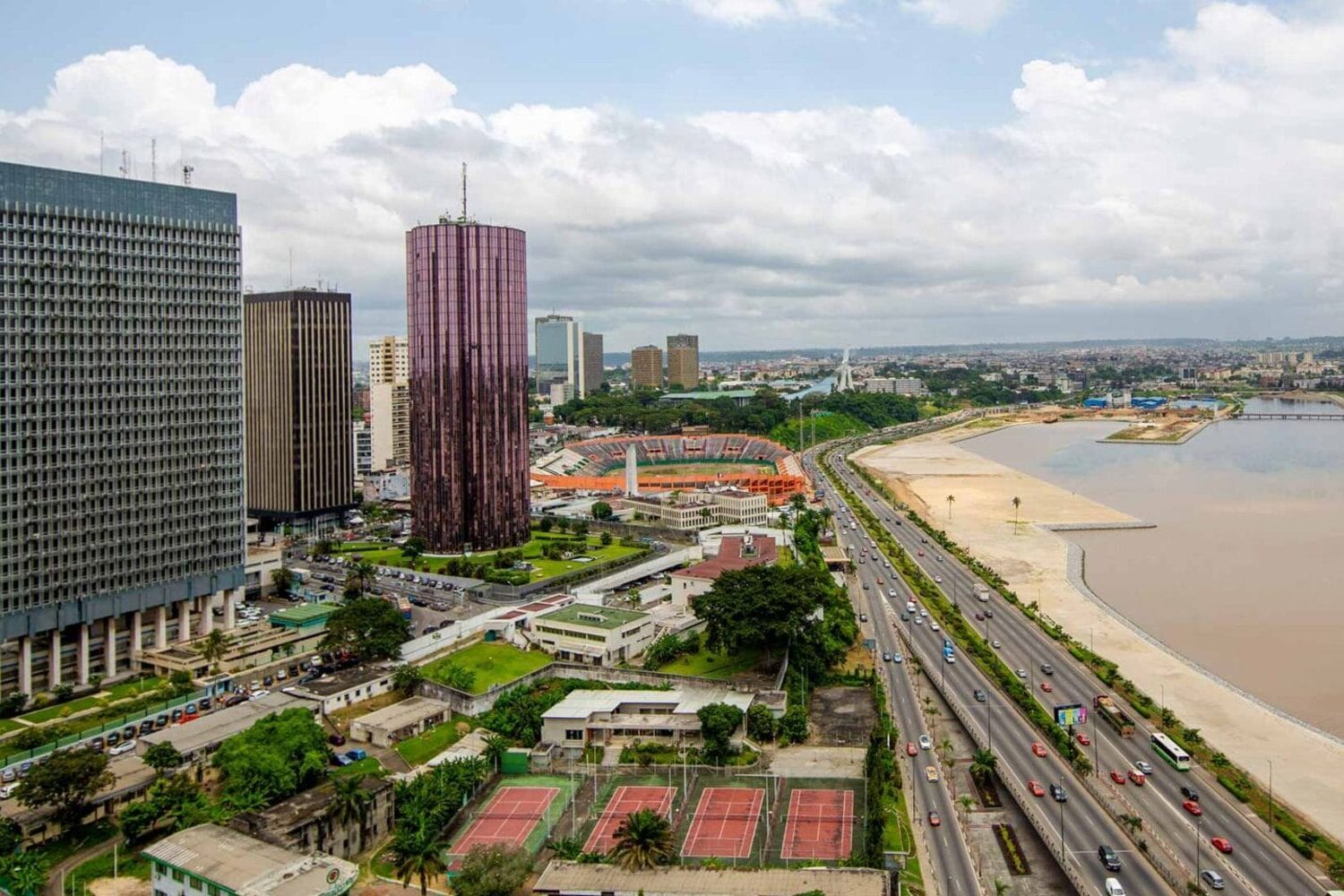Abidjan is one of the most vibrant and rapidly developing cities in West Africa. It lies on the coast of the Atlantic Ocean and serves as the economic, cultural and financial center of Côte d’Ivoire. The modern character of the city is shaped by tall skyscrapers, a bustling port and architecture that blends European and African traditions. Abidjan is often called the Paris of Africa thanks to its atmosphere, pace of life and influence on the development of the region. In this article you will discover interesting facts, incredible facts and fascinating facts about Abidjan that you may not have known.
- Abidjan is the largest city in Côte d’Ivoire, although the official capital of the country is Yamoussoukro. It is home to the main administrative institutions, large corporations and diplomatic missions. This makes the city the true heart of the nation.
- The population of Abidjan exceeds 5 million people and continues to grow. The city is multinational, with dozens of ethnic groups living side by side. This diversity creates a unique cultural identity.
- The city’s development is strongly influenced by its geographical location. Abidjan is situated on the Ébrié Lagoon, which opens into the Gulf of Guinea. Its convenient position has made it a major transportation and trade hub.
- The port of Abidjan is one of the largest in West Africa. It handles hundreds of ships each year and provides the country with its main maritime trade flows. Most of the country’s exports and imports pass through this port.
- Abidjan is known for its modern architecture. In the city center, tall skyscrapers contrast with traditional neighborhoods. This gives the city a distinctive look and makes it resemble global metropolises.
- One of the city’s architectural landmarks is the Cathedral of Saint Paul. It was built in the 1980s to the design of an Italian architect and has since become a symbol of modern Abidjan. The cathedral stands out with its unusual geometric forms and monumentality.
- The city has a well-developed education system. It is home to the Félix Houphouët-Boigny University, one of the largest in the region. Thousands of students from different African countries study there.
- Abidjan is famous for its lively cultural scene. Music festivals, exhibitions and theater performances are regularly held in the city. It is here that the popular musical genre coupé-décalé emerged and spread beyond the country.
- The city’s markets are impressive in both scale and variety. They offer everything from spices and tropical fruits to handicrafts. The largest market, Treichville, attracts both locals and tourists.
- Abidjan has a well-developed transportation infrastructure. The Félix Houphouët-Boigny Bridge connects the shores of the lagoon and serves as an important transportation corridor. The city also has modern highways and an international airport.
- Abidjan combines traditional African districts with European-style neighborhoods. Cocody, for example, is a prestigious area where embassies and diplomatic residences are located. Treichville, on the other hand, is known for its music, nightlife and street culture.
- The city is considered one of the most cosmopolitan in Africa. Many foreign companies operate there, and immigrants from Lebanon, France and other countries live in the city. This makes Abidjan an important center of international connections.
- Abidjan is also known for its beaches. Although strong currents sometimes make swimming unsafe, they remain popular places for leisure. The ocean views and fresh sea air attract many visitors.
- The city is home to numerous museums and galleries. The National Museum of Côte d’Ivoire introduces visitors to the country’s history and art. Ethnographic exhibits show the cultural diversity of local peoples.
- Sports play an important role in the city’s life. Football is the most popular sport, and Abidjan has several large stadiums. Many famous Ivorian footballers who achieved worldwide fame grew up here.
- The climate of Abidjan is tropical and humid. There are two rainy seasons which influence living conditions. At the same time, this ensures the city’s lush vegetation.
- An important cultural symbol of the city is the cultural center in Treichville. It hosts major events, concerts and public gatherings. It is regarded as a hub of art and creativity.
- Abidjan is experiencing rapid growth thanks to the economic development of Côte d’Ivoire. New buildings, shopping centers and infrastructure projects are transforming the city’s landscape. This makes it one of the most modern metropolises in the region.
- The city also plays a significant role in religious life. It is home to mosques, Catholic and Protestant churches that coexist peacefully. Such multiconfessionalism fosters an atmosphere of mutual respect.
Abidjan is a city of contrasts, where tradition meets modernity and African identity blends with global influence. It is the true heart of Côte d’Ivoire and one of the leading centers of West Africa. Such interesting facts, incredible facts and fascinating facts help us see Abidjan in a new light. You may not have known many of them, but now the city has revealed some of its secrets to you.





